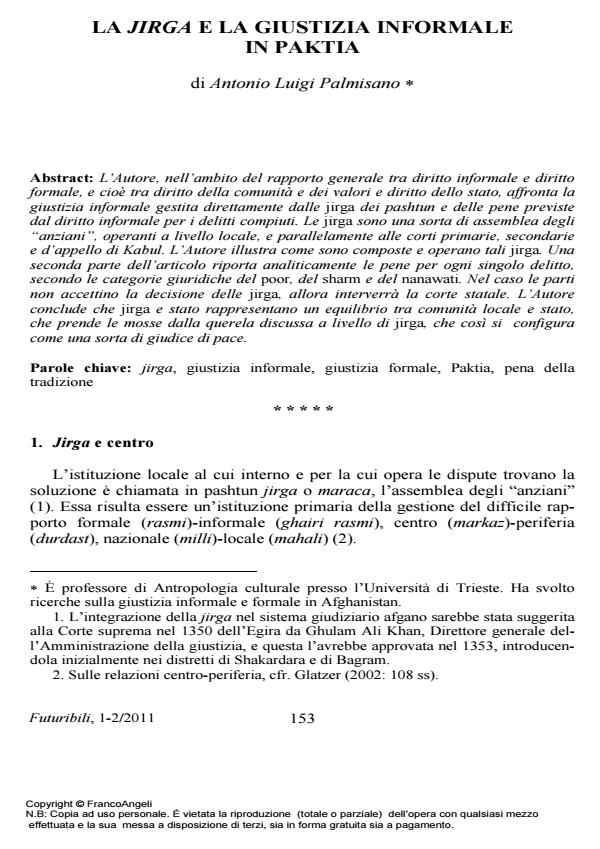The jirga and informal justice in Paktia
Journal title FUTURIBILI
Author/s Antonio Luigi Palmisano
Publishing Year 2011 Issue 2011/1-2 Language Italian
Pages 25 P. 153-177 File size 331 KB
DOI 10.3280/FU2011-001011
DOI is like a bar code for intellectual property: to have more infomation
click here
Below, you can see the article first page
If you want to buy this article in PDF format, you can do it, following the instructions to buy download credits

FrancoAngeli is member of Publishers International Linking Association, Inc (PILA), a not-for-profit association which run the CrossRef service enabling links to and from online scholarly content.
In the context of the general relationship between informal and formal law, that is to say between the law of the community and the values and laws of the state, the Author analyses informal justice as directly administered by the Pashtun jirga and the punishments laid down by informal law for crimes committed. A jirga is a form of council of elders operating at local level in parallel to the courts of first and second instance and the court of appeal in Kabul. Following an explanation of the composition and operation of jirgas , the Author analyses the penalties laid down for every crime in accordance with the juridical categories of poor, sharm and nanawati . If the parties involved do not accept the judgement of the jirga , the matter passes to the official justice system. The Author concludes that the jirga and state justice represent an equilibrium between local communities and the state, which takes its cue from the discussion of disputes in the jirga and is thereby configured as a form of justice of the peace.
Keywords: <i>Jirga </i>, giustizia informale, giustizia formale, Paktia, pena della tradizione
Antonio Luigi Palmisano, La <i>jirga</i> e la giustizia informale in Paktia in "FUTURIBILI" 1-2/2011, pp 153-177, DOI: 10.3280/FU2011-001011